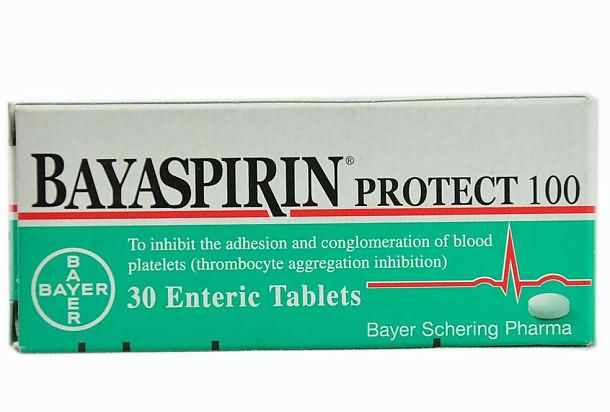
Two new studies found the regular use of aspirin was associated with a reduction in two deadly cancers, ovarian and liver. Photo by Mosesofmason/Wikimedia Commons
常规服用阿司匹林可降低两种致命癌症的风险—卵巢癌和肝细胞癌,这两种癌症都始于肝脏。每两种类型的癌症风险降低20%至50%。研究结果发表在星期四的《JAMA肿瘤学》上,该两研究是利用护士健康信息进行的。研究由哈佛大学公共卫生学院赞助,并由国立癌症研究所资助。
Oct. 4 (UPI) -- The regular use of aspirin was associated with a reduced risk of two deadly cancers -- ovarian and hepatocellular carcinoma, which starts in the liver.
Two studies published Thursday in JAMA Oncology, conducted using information from the Nurses' Health Studies, suggest the risk for each type of cancer decreases between 20 and 50 percent with aspirin use.
One study looked at the risk for hepatocellular carcinoma, the most common type of primary liver cancer in adults and common cause of death in people with cirrhosis. The other focused on ovarian cancer, a highly fatal malignant neoplasm with few modifiable risk factors.
The use of a form of aspirin dates back thousands of years to treat pain, fever or inflammation. In 400 BC, Hippocrates described the ability of salicylic tea to relieve fever and by the 19th century, pharmacists were widely prescribing salicylic acid derivatives.
RELATED Personalized vaccine shows promise against range of cancers
Aspirin is now commonly used long-term to help prevent further heart attacks, ischemic strokes and blood clots in people at high risk.
And in the past two decades, aspirin has increasingly been looked at to help prevent cancer. This is partially based on the idea that aspirin reduces inflammation, because human tumors are generally infiltrated by inflammatory cells.
Last week, U.K. researchers published an analysis of 71 studies involving 120,000 patients with cancer who took aspirin and 400,000 patients who did not. They found the proportion of patients still alive was 20 percent to 30 greater in those taking aspirin -- similar to the findings of the two new studies.
RELATED Most people unsure if they have genetic risk for cancer
"So, have we arrived?" Dr. Victoria L. Seewaldt, of the City of Hope Comprehensive Cancer Center, in Calfironia, wrote in an editorial published in JAMA Oncology with the two studies. "The two studies ... are a critical step in realizing a broader populationwide use of aspirin for cancer chemoprevention."
Both studies used data from the Nurses Health Studies, which initially involved female nurses aged 33-55 starting in 1976, and was expanded to male health professionals aged 40-75 in 1986. The studies were sponsored by the Harvard School of Public Health and funded by the National Cancer Institute.
For the ovarian cancer study, researchers analyzed 93,664 women who were followed up from 1980 to 2014, and 111,834 followed from 1989 to 2015.
RELATED Aspirin could play key role in treating some cancers
The study focused on various types of analgesic -- aspirin, low-dose aspirin, nonaspirin nonsteroidal anti-inflammatory drugs and acetaminophen. They looked at timing, duration, frequency and number of tablets used.
Among the 205,498 women in both cohorts, there were 1,054 cases of incident epithelial ovarian cancer.
Researchers found a 23 percent lower risk of ovarian cancer among regular users of low-dose aspirin. But there was a 19 percent increased risk of ovarian cancer with long-term high-quantity use of other analgesics, particularly nonaspirin NSAIDs. They noted "the association between other nonsteroidal anti-inflammatory drugs and ovarian cancer may be more complex."
In the hepatocellular carcinoma study, the researchers reviewed data on 133,371 healthcare professionals who reported frequency, dosage and duration of aspirin use biennially in 87,507 women since 1980 and in 45,864 men since 1986
A regular dose of aspirin at least two or more times per week was associated with a 49 percent reduced risk of developing the disease. The observed benefit of aspirin was dose and duration dependent, appearing with aspirin use for five years or more, at a dose of 1.5 or more standard tablets per week.
Like the ovarian cancer study, there was no HCC risk reduction with regular nonaspirin NSAID.
"Our findings add to the growing literature suggesting that the chemopreventive effects of aspirin may extend beyond colorectal cancer," the authors wrote. "Research to uncover the mechanisms by which aspirin inhibits hepatocarcinogenesis may facilitate the development of HCC primary prevention strategies."
While the results of both studies reveal significant potential for using aspirin against cancer, and "have the power to start to change clinical practice," Seewaldt wrote that more work needs to be done.
"To realize the full potential of aspirin in precision chemoprevention, the molecular underpinnings of these important risk reduction effects also need to be defined," she wrote.
In addition to determining dose, frequency and specific benefits, Seewaldt said side effects of the drug need to be considered depending on the patient.
"As both articles caution, the potential benefits of aspirin must be weighed against the risk of bleeding, particularly in individuals with chronic liver disease," Seewaldt wrote. "To reach the full promise of aspirin's ability to prevent cancer, there needs to be better understanding of dose, duration and mechanism."




